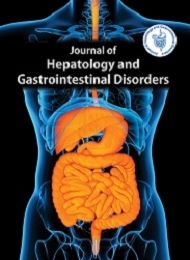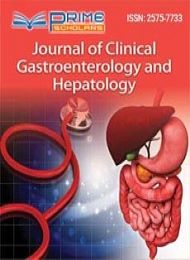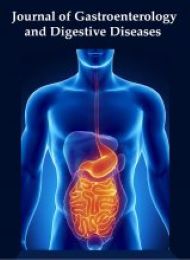Theme:
Gastroenterology Conference - 2023
It is our honour and pleasure to welcome you to the “5th International Conference on Gastroenterology and Liver Diseases” which was programmed in on September 20-21, 2023 as a Webinar.
Gastroenterology Conference 2023 has been planned to gather all the world class Scientists, Gastroenterology Doctors, Researchers, Gastroenterology Specialists and Business Professionals under one roof to converse the newest topics in Gastroenterology. Also planned with its well-ordered scientific program expects more participants around the world to experience the best forum with communicating sessions, Keynote and plenary sessions on the current techniques in the field of Gastroenterology.
The conference theme “Latest technologies and innovations in treating Liver Diseases ’’ inspires the foremost technological research in both academia and industrial applications.
The two-day program will focus on the emerging issues in Gastroenterology and Liver Diseases such as Liver surgery, Gastroenterology, Gastro Oncology, Esophageal disease, Gastroenterology & Pregnancy.
We are glad to meet you and learn more about your professional and explore more on Gastroenterology.
We will hope you to join with us at Gastroenterology Conference 2023.
“5th International Conference on Gastroenterology and Liver Diseases” the entire challenger globally to appear our highly dedicated events scheduled to be held on September 20-21, 2023 as a Webinar. Highlights of the theme, “Latest technologies and innovations in treating Liver Diseases”. Gastroenterology conference highlights the new technology in the Liver Diseases, Gastroenterology, Gastro Oncology, Esophageal disease, fatty liver diseases, cirrhosis, gallstones, hepatitis and all related subjects.
Gastroenterology 2023 is the study of medicines that related to Liver, stomach, small intestine, colon, rectum; Doctors who specialized in this study are called Gastroenterologists or herpetologists. The sub-specialties in Gastroenterology are; Liver Diseases, Gastroenterology, Gastro Oncology, Esophageal disease, fatty liver diseases, cirrhosis, gallstones , hepatitis. Participating at Gastroenterology 2023 is an excellent opportunity to meet eminent personalities within the fields of gastroenterology and learn about the latest advancements.
Target Audience:
Academic Researchers, Associate Professors, Clinical Researchers, Entrepreneurs, Gastroenterology companies, Physician, Surgeons, Gastroenterology Professors, R&D Companies, Research Scholars, Specialists, Public Healthiest, Internal Medicine Physicians.
Session-1: Gastrointestinal Bleeding and Pathology:
Gastrointestinal (GI) bleeding is a syndrome of a disorder in your digestive tract. The blood often appears in stool or vomit but isn't always conspicuous, though it may cause the stool to look black or tarry. The level of bleeding can align from mild to severe and can be life-threatening. Gastrointestinal pathology (counting liver, gallbladder and pancreas) is an possible sub-strength discipline of surgical pathology. Assertion of a sub-claim to fame is commonly related to committed partnership preparing offered inside the subspecialty or, then again, to surgical pathologists with a remarkable interest and wide contribution with gastrointestinal pathology. The gastrointestinal (GI) pathology prefer quality characteristic histopathology on gastrointestinal endoscopic biopsies and resections of the gastrointestinal pancreatic-biliary systems. Gastrointestinal bleeding is one of the essential objections of the patients which could be wearisome, smooth or destructive. A large portion of the circumstances, GI bleeding are composed without any other individual's info, yet they are at any rate assessed to stay away from a rehash and to fend off advance development of disorder, anticipating any Reasons for Gastrointestinal Bleeding and Pathology.
Types of Gastrointestinal Bleeding:
- Peptic ulcer
- Esophagitis
- Diverticular disease
- Inflammatory bowel disease (IBD)
- Haemorrhoids
- Anal fissures
Related Associations and Societies: ACG Patient Education Center | American College of Gastroenterology | Nature: Gastroenterology | Cellular and Molecular Gastro. and Hepatology (CMGH) | Clinical Gastroenterology and Hepatology | Celiac Disease Foundation
Session-2: Pediatric Gastrointestinal Cancer:
Primary gastric adenocarcinoma may be a rare cancer in children, and occurs in 0.05% of all childhood cancers. The initial clinical presentations were mostly nonspecific abdominal symptoms, like dyspepsia, epigastric pain, nausea/vomiting, weight loss, and gastrointestinal bleeding.
Related Associations and Societies: Crohn's & Colitis Foundation of America | Society for Pediatric Gastroenterology, Hepatology and Nutrition | American Gastroenterological Association | Gastroenterology Journal | International Foundation for Functional Gastrointestinal Disorders
Session-3: Neuro Gastroenterology:
Neurogastroenterology might be a subspecialty of gastroenterology that covers with nervous system science. The enteric systema nervosum may be a collection of neurones which will function independently of the central systema nervosum (CNS).
Related Associations and Societies: MedPage Today: Gastroenterology | National Institute of Diabetes and Digestive and Kidney Diseases | Cellular and Molecular Gastro. and Hepatology (CMGH) | Celiac Disease Foundation | National Celiac Association (NCA)
Session-4: Gastrointestinal Endoscopy:
Gastrointestinal endoscopy might be a demonstrative and helpful method that grants one to picture, evaluate, and treat GI sicknesses. Gastrointestinal endoscopy are often categorized as upper or lower endoscopy counting on whether the upper alimentary canal (esophagus, stomach, duodenum, jejunum) or lower alimentary canal (rectum, colon, and terminal ileum) is examined.
Related Associations and Societies: American Society of Colon and Rectal Surgeons | Celiac Disease Foundation | National Celiac Association (NCA) | The Lancet Gastroenterology & Hepatology | MedPage Today: Gastroenterology
Session-5: Gastroenterological Transplantation:
Transplant Hepatology represents advanced training in gastroenterology and focuses on the management of advanced disease. Preparing gives a thorough comprehension of hepatopathology and indicative strategies expected to guage and oversee potential liver transfer patients.
Related Associations and Societies: American Journal of Gastroenterology | Crohn's & Colitis Foundation of America | Gastroenterology and Endoscopy News | Clinical Gastroenterology and Hepatology | National Celiac Association (NCA)
Session-6: Gastro Oncology:
The Gastrointestinal Medical Oncology office might be a group of exceptionally specific clinical oncologists, researchers, doctor collaborators and examination attendants who treat gastrointestinal malignancies, including diseases of the liver, bile duct, gallbladder, pancreas, large and little bowel, stomach, esophagus and rare tumours.
Related Associations and Societies: ACG Patient Education Center | Gastroenterology and Endoscopy News | International Foundation for Functional Gastrointestinal Disorders | National Institute of Diabetes and Digestive and Kidney Diseases | Society for Pediatric Gastroenterology, Hepatology and Nutrition
Session-7: Surgical, Endoscopic, and Future Therapies:
Traditionally, three endoscopic treatment methods of peptic ulceration bleeding are used: Injection therapy, thermal therapy, and mechanical therapy. The question of whether monotherapy or combined modality therapy is simpler has been the topic of several trials and meta-analyses.
Related Associations and Societies: American Journal of Gastroenterology | Clinical Gastroenterology and Hepatology| Celiac Disease Foundation | National Celiac Association (NCA) | American Society for Gastrointestinal Endoscopy
Session-8: Gastroenterology & Pregnancy:
A portion of the first basic gastrointestinal issues ladies experience during pregnancy are sickness and heaving, hyperemesis, esophageal reflux illness, gallstones, loose bowels, and obstruction. Some women may are diagnosed before pregnancy with GI disorders like Crohn’s disease or colitis.
Related Associations and Societies: ACG Patient Education Center | American College of Gastroenterology | Nature: Gastroenterology | Cellular and Molecular Gastro. and Hepatology (CMGH) | Clinical Gastroenterology and Hepatology | Celiac Disease Foundation
Session-9: Intestinal Rehabilitation:
Intestinal recovery incorporates procedures and treatments intended to frame the gut work better, as healthful help, dietary restoration, clinical administration and remedial medical procedure. Intestinal rehabilitation may be a potential strategy for anyone with short bowel syndrome of other GI dysfunction.
Related Associations and Societies: Crohn's & Colitis Foundation of America | Society for Pediatric Gastroenterology, Hepatology and Nutrition | American Gastroenterological Association | Gastroenterology Journal | International Foundation for Functional Gastrointestinal Disorders
Session-10: Ulcerative Colitis and Crohn’s Disease:
Ulcerative Colitis and Crohn's Disease are chronic inflammatory bowel diseases (IBD) that affect the digestive tract, causing significant discomfort and potentially severe complications. While they share some similarities, they also have distinct differences.
Ulcerative Colitis primarily impacts the colon (large intestine) and rectum, causing inflammation and ulcers in the mucosal lining. It often leads to symptoms like bloody diarrhea, abdominal pain, and urgency to have bowel movements.
In contrast, Crohn's Disease can affect any part of the digestive tract, from the mouth to the anus, and can involve deeper layers of tissue. This results in a wider range of symptoms, including abdominal pain, diarrhea, weight loss, and complications like strictures and fistulas.
Both conditions are thought to be caused by a combination of genetic, environmental, and immune system factors. Treatment options for both include medications to reduce inflammation, lifestyle modifications, and in some cases, surgery to address complications.
Both conditions can significantly impact a person's quality of life, and management often requires ongoing medical care and dietary adjustments to minimize symptoms and prevent flare-ups. It's essential for individuals with these conditions to work closely with healthcare professionals for effective management and support.
Related Associations and Societies: MedPage Today: Gastroenterology | National Institute of Diabetes and Digestive and Kidney Diseases | Cellular and Molecular Gastro. and Hepatology (CMGH) | Celiac Disease Foundation | National Celiac Association (NCA)
Session-11: Gastrointestinal Pathology:
Gastrointestinal pathology, likewise wholesome waterway pathology, might be a huge a piece of pathology as radiologists can frequently portray the degree of illness... yet, aren't getting the analysis right constantly.
Related Associations and Societies: American Journal of Gastroenterology | Crohn's & Colitis Foundation of America | Gastroenterology and Endoscopy News | Clinical Gastroenterology and Hepatology | National Celiac Association (NCA)
Session-12: Gastrointestinal Immunology:
The alimentary canal (GI tract) plays dual roles in human physiology: digestion and uptake of nutrients and therefore the more daunting task of maintaining immune homeostasis (protecting the body from conceivably destructive organisms, while inciting tolerogenic reactions to harmless food, commensals and self-antigens).
Related Associations and Societies: ACG Patient Education Center | Gastroenterology and Endoscopy News | International Foundation for Functional Gastrointestinal Disorders | National Institute of Diabetes and Digestive and Kidney Diseases | Society for Pediatric Gastroenterology, Hepatology and Nutrition
Session-13: Gastroenterology:
Gastroenterology is the study of the normal function and diseases of the Esophagus, stomach, small intestine, colon and rectum, pancreas, gallbladder, bile ducts and liver and it includes the organs from mouth into anus, along the alimentary canal. It incorporates a point to point study of the typical action (physiology) of the gastrointestinal organs including the evolution of material through the stomach and digestive system the absorption and confinement of supplements to the body, removal of waste from the body, and the amplitude of the liver as a digestive organ.
List of common diseases of the digestive system
- Irritable Bowel Syndrome (IBS)
- Inflammatory Bowel Disease (IBD)
- Gastroesophageal reflux Disease (GERD)
- Celiac Disease
- Diverticulitis
Related Associations and Societies: American Journal of Gastroenterology | Clinical Gastroenterology and Hepatology| Celiac Disease Foundation | National Celiac Association (NCA) | American Society for Gastrointestinal Endoscopy
Session-14: Gastrointestinal Surgery:
Gastrointestinal surgery is a cure for diseases of the parts of the body involved in digestion. It covers two specialties of general a medical agenda (upper gastrointestinal surgery and colorectal surgery). Upper gastrointestinal surgery covers a medical proceeding on the stomach, throat (neck), small digestive tract, liver, gall bladder and pancreas. There is a astounding supporting interdisciplinary bunch which joins anaesthetists, endocrinologists, gastroenterologists, examiners, oncologists, radiologists and histopathologists to play out this surgery. Surgery might be utilized to eradicate a carcinogenic or noncancerous development or harmed part of the body, like the digestive tract. It might likewise be correlated to fix an issue like a hernia (an opening or flimsy point in the mass of the mid-region). Minor surgeries are adjusted to screen and analyse issues of the stomach related framework. Underneath circumstances that might be treated with a surgery.
- Appendicitis
- Weight misfortune
- Rectal prolapse
- Inflammatory gut sickness (Crohn’s disease and ulcerative colitis)
- Hernia
- Gastroesophageal reflux disease (GERD) and hiatal hernias
- Gallbladder infection
- Diverticular illness
- Colon malignant growth and other gastrointestinal diseases
Related Associations and Societies: Crohn's & Colitis Foundation of America | Society for Pediatric Gastroenterology, Hepatology and Nutrition | American Gastroenterological Association | Gastroenterology Journal | International Foundation for Functional Gastrointestinal Disorders
Session-15: Gastroparesis:
Gastroparesis, also called delayed gastric emptying, is a syndrome that slows or stops the flow of food from our stomach to our small intestine. Normally, after swallowing food, the muscles in the wall of our stomach grind the food into smaller pieces and push them into our small intestine to continue digestion. When we have Gastroparesis our stomach muscles work poorly or not at all, and our stomach takes too long to empty its contents. Gastroparesis can delay metabolism, which can lead to various symptoms and obstacles. Gastroparesis is not common. Out of 100,000 people, about 10 men and about 40 women will have Gastroparesis. However, symptoms that are similar to those of Gastroparesis occur in about 1 out of 4 adults who are more likely to get Gastroparesis are who have diabetes and who had surgery on Esophagus, stomach, or small intestine, which may injure the vagus nerve NIH external link. The vagus nerve reins the muscles of the stomach and small intestine. Gastroparesis likely to occur to certain cancer treatments, such as radiation therapy NIH external link on chest or stomach area.
- Most common symptoms of Gastroparesis
- Chronic nausea
- Vomiting
- Abdominal pain
- A feeling of fullness
Related Associations and Societies: Crohn's & Colitis Foundation of America | Society for Pediatric Gastroenterology, Hepatology and Nutrition | American Gastroenterological Association | Gastroenterology Journal | International Foundation for Functional Gastrointestinal Disorders
Session-16: Esophageal Diseases:
Esophageal diseases are a collection of conditions that affect how the esophagus works. Esophagus is the food pipe which is the part of the digestive system that helps food travel from our mouth to our stomach. Disparate diseases can affect the esophagus, causing dysphagia or complication in swallowing or excessively hot, or excessively cold. You may likewise see it when something wasn’t right. You may feel torment or experience complication. The most well-known controversy with the throat is GERD (Gastroesophageal reflux disease). With GERD, a muscle at the end of our esophagus doesn't close accordingly. It permits stomach contents to spill back, or reflux, into the throat and provoke it. After some time, GERD can harm the throat. Different issues incorporate acid reflux, malignant growth, and eosinophilia esophagitis. Professionals may utilize different tests to make a diagnosis. It includes imaging tests, an upper endoscopy, and a biopsy. Treatment depends upon the issue. Few issues improve with over counter medications or change of diet. Remaining may require physician recommended medicines or medical procedure.
Here are some of the additional diseases and conditions that affect the Esophagus:
- Esophageal atresia
- Esophageal cancer
- Esophageal dysphagia
- Esophageal varices
- Esophagitis
- Caustic injury to the Esophagus
Related Associations and Societies: MedPage Today: Gastroenterology | National Institute of Diabetes and Digestive and Kidney Diseases | Cellular and Molecular Gastro. and Hepatology (CMGH) | Celiac Disease Foundation | National Celiac Association (NCA)
Session-17: Irritable Bowel Syndrome:
Irritable bowel syndrome (IBS) is a common disease which affects the large intestine. Irritable bowel syndrome (IBS) signs and symptoms include cramping, abdominal pain, bloating, gas, diarrhoea and constipation. Irritable bowel syndrome (IBS) is a chronic disease that you need to manage long term. Only a meagre number of people with IBS have severe signs and symptoms. Some humans can control their symptoms by controlling diet, lifestyle and stress. More-severe symptoms can be treated with assistance and counselling. Irritable Bowel Syndrome (IBS) doesn't cause or changes in bowel tissue or increase your risk of colorectal cancer.
The signs and symptoms of Irritable bowel syndrome (IBS) vary but are usually present for a long term. The most common syndromes are abdominal pain, cramping or bloating that is related to passing a bowel movement. Changes in appearance of bowel movement. Changes in how often you are having a bowel movement and other symptoms that are often related to include bloating, increased gas or mucus in the stool. Consult your doctor if you have a enduring change in bowel habits or other signs or symptoms of Irritable bowel syndrome (IBS). Irritable bowel syndrome may indicate more serious conditions, such as colon cancer.
Irritable bowel syndrome signs and symptoms include:
- Weight loss
- Diarrhea at night
- Rectal bleeding
- Iron deficiency anaemia
- Unexplained vomiting
- Difficulty swallowing
Related Associations and Societies: American Society of Colon and Rectal Surgeons | Celiac Disease Foundation | National Celiac Association (NCA) | The Lancet Gastroenterology & Hepatology | MedPage Today: Gastroenterology
Session-18: Hepatitis and Liver Diseases:
Hepatitis is an inflammation of the liver. The inflammation was caused due to excess alcohol consumption, several health conditions, and some anesthetic can all cause this conditions. However, viral flu is the most common cause of hepatitis.
So In this article, we will discuss about the different types of hepatitis, their common symptoms, causes, and how to treat and prevent the condition. Hepatitis is commonly caused because of viral infection and still they are other possible causes of hepatitis. These include autoimmune hepatitis and hepatitis that occurs as a secondary result of anesthetic, toxins, and alcohol. Autoimmune hepatitis is a disease that occurs when our body makes antibodies against our liver tissue.
The five viral classifications of hepatitis are
- Hepatitis A
- Hepatitis B
- Hepatitis C
- Hepatitis D
- Hepatitis E
Each different virus is responsible for each type of viral hepatitis. The World Health Organization (WHO) surveys that 354 million Trusted Source people currently live with chronic hepatitis B and C globally.
Related Associations and Societies: American Journal of Gastroenterology | Crohn's & Colitis Foundation of America | Gastroenterology and Endoscopy News | Clinical Gastroenterology and Hepatology | National Celiac Association (NCA)
Session-19: Clinical research in gastroenterology:
Clinical research is a part of healthcare science that regulate the safety and effectiveness (efficacy) of medications, devices, diagnostic products and treatment regimens intended for human use. These may be used for prevention, treatment, diagnosis or for relieving malady of a disease. So the principles of the division of Gastroenterology research programs are to propel information in the space of gastroenterology and hepatology through innovative fundamental science, translational, and clinical exploration and to strengthen the soul of logical request among workforce, colleagues, occupants, and understudies. Gastroenterology Division inquisitor are effectively associated with various undertakings in the scrutiny of the science, avoidance, finding, and treatment of gastrointestinal and liver sicknesses like
- Colon malignant growth screening
- Fiery entrails sickness, including Crohn's illness and ulcerative colitis
- Hepatitis, cirrhosis, liver malignant growth, and other liver sickness
- Job of adiposity in Esophageal and colorectal malignant growths
- Movement of persistent liver sickness and serum bile acids
- HIV and Mucosal immunology.
Related Associations and Societies: American Journal of Gastroenterology | Clinical Gastroenterology and Hepatology| Celiac Disease Foundation | National Celiac Association (NCA) | American Society for Gastrointestinal Endoscopy
Session-20: Advances in Gastroenterology:
Gastroenterology has risen up out of the boondocks of clinical fortitude just in the course of recent years. It is Because of gigantic enhancement in the field of analysis and treatment. Gastroenterology has gone through double parting into hepatology and "empty organ" gastroenterology. Developments in colorectal malignancy screening, case endoscopy, remedies for hepatitis C and new biologic treatments are a portion of the new advances in gastroenterology.
Neurogastroenterology is the analysis of the mind, the gut, and their associations with pertinence to the arrangement and the board of gastrointestinal motility and practical gastrointestinal issues. Unequivocally, Neurogastroenterology focuses on the capacities, breakdowns, and the contortions of the thoughtful, parasympathetic, and enteric divisions of the abdomen related plot. Preoral endoscopic myotomy (POEM) was presented as another compelling remedial choice for Esophageal achalasia.
Here are some of the advanced treatments in Gastroenterology
- Latest Advances and Current Trends in Gastrointestinal Therapeutics
- Gastrointestinal Transplantation
- Gastrointestinal Advanced Treatment Procedure
- Neuro-Gastroenterology
- Preoral endoscopic myotomy &High-resolution manometry (HRM)
Related Associations and Societies: American Journal of Gastroenterology | Crohn's & Colitis Foundation of America | Gastroenterology and Endoscopy News | Clinical Gastroenterology and Hepatology | National Celiac Association (NCA)
Conference Highlights
- Gastrointestinal Bleeding and Pathology
- Pediatric Gastrointestinal Cancer
- Neuro Gastroenterology
- Gastrointestinal Endoscopy
- Gastroenterological Transplantation
- Gastro Oncology
- Surgical, Endoscopic, and Future Therapies
- Gastroenterology & Pregnancy
- Intestinal Rehabilitation
- Ulcerative Colitis and Crohn’s Disease
- Gastrointestinal Pathology
- Gastrointestinal Immunology
- Gastroenterology
- Gastrointestinal Surgery
- Gastroparesis
- Esophageal Diseases
- Irritable Bowel Syndrome
- Hepatitis and Liver Diseases
- Clinical research in gastroenterology
- Advances in Gastroenterology
To share your views and research, please click here to register for the Conference.
To Collaborate Scientific Professionals around the World
| Conference Date | September 20-21, 2023 | ||
| Sponsors & Exhibitors |
|
||
| Speaker Opportunity Closed | |||
| Poster Opportunity Closed | Click Here to View | ||
Useful Links
Special Issues
All accepted abstracts will be published in respective Our International Journals.
- Journal of Hepatology and Gastrointestinal disorders
- Journal of Gastroenterology and Digestive Diseases
- Journal of Clinical Gastroenterology and Hepatology
Abstracts will be provided with Digital Object Identifier by












